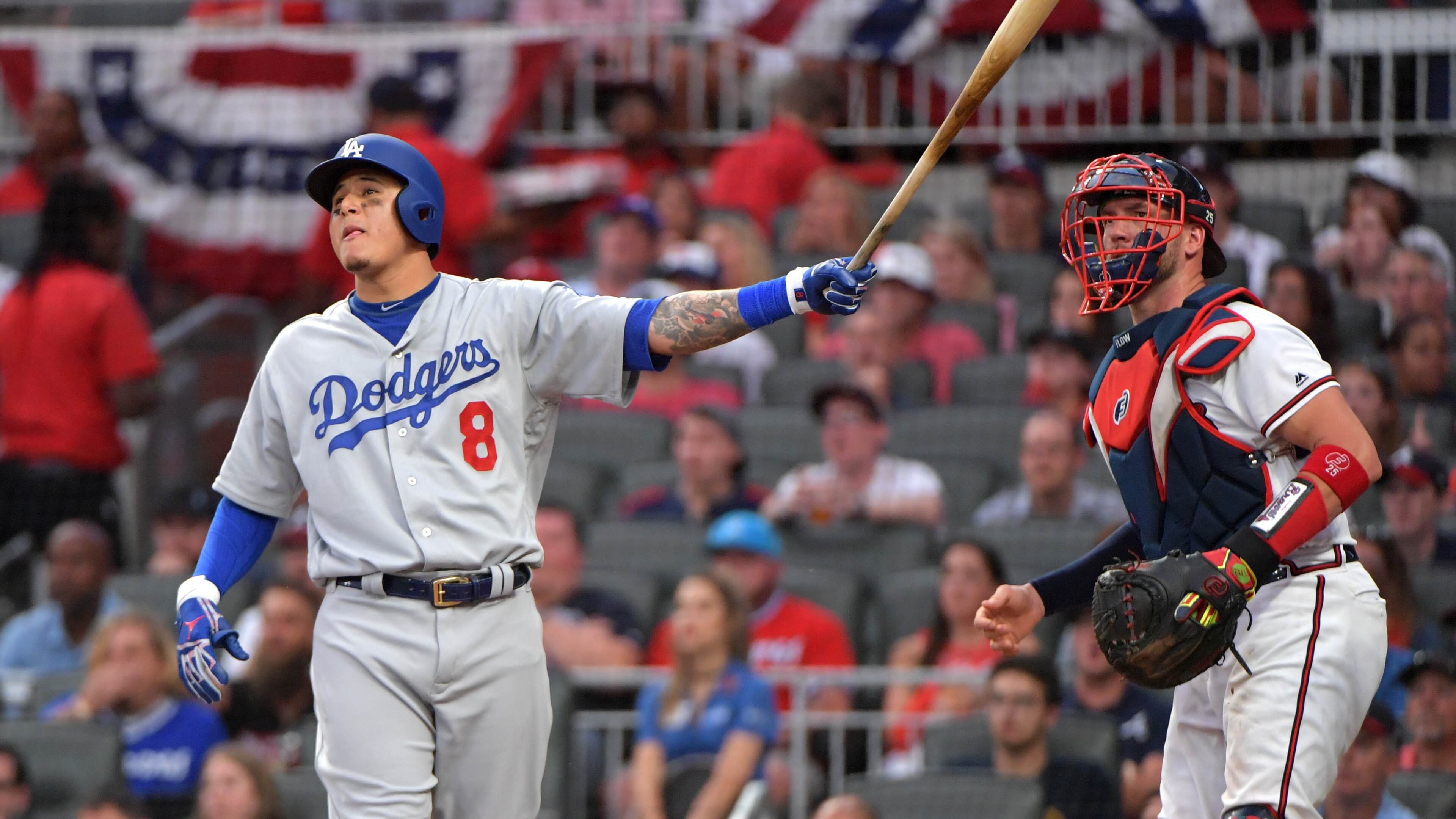Machado hits $300 million. Better him than Harper

Manny Machado was the better of baseball’s two famously unemployed position players, and now he has found an employer. The Padres will pay him $300 million over 10 seasons – Machado can opt out after five – in what is the biggest free-agent signing in the annals of North American sports. Bigger than A-Rod. Bigger than Pujols. Bigger than LeBron or KD. Bigger, in sum, than big.
Here's what the Padres are getting for their money – a 26-year-old who insists on playing a position (shortstop) at which he's nothing special, a major talent who famously said that being "Johnny Hustle" isn't "my cup of tea." His addition makes the Padres, a team that hasn't broken .500 since 2010, a club to watch. But San Diego has sunk big money -- $83 million over six seasons for Wil Myers; $144 mil over eight for Eric Hosmer – and it has made no difference. Last year it went 66-96 and finished 25-1/2 games behind the Dodgers in the National League West.
The Braves touched off their rebuild with much help from the Padres. The salaries of Craig Kimbrel and the Brothers Upton to San Diego in two deals that yielded Cameron Maybin and a passel of prospects. Matt Wisler and Jace Peterson didn’t pan out. Mallex Smith was shipped to Seattle for Luiz Gohara. Dustin Peterson was claimed off waivers by Detroit in September. Only Max Fried remains from those two transactions, and he’s not expected to win a spot in the big-league rotation.
Those two deals with John Coppolella were among the many swung by A.J. Preller in his first year as Padres general manager. He loaded up on big names – the Uptons, Kimbrel, Myers, Matt Kemp, Derek Norris, Will Middlebrooks and James Shields – and "won" the 2014/2015 offseason, as the saying goes. That remains the only thing Preller's Padres have won. By the summer of 2015, the GM was already in sell-off mode. (Rany Jazayerli of the Ringer wrote an epic dissection of Preller's missteps that July. Its title: "Teardown Artist.")
Give Preller this, though: Having broken the Padres' farm system, he fixed it posthaste. Keith Law of ESPN just ranked San Diego's minor leaguers as baseball's best. (The Braves, No. 1 for three years running, have slipped all the way to No. 3.) Preller's club again appears to have a future, which is never a bad thing to have.
A question that hangs over every organization with a bumper crop of prospects is when/if it will begin to supplement the homegrown product with big-ticket acquisitions. The Braves, under Coppolella and now Alex Anthopoulos, have mostly refused, with $23 million for one year of Josh Donaldson being the exception. Preller hooked Hosmer even when it was clear the Padres weren’t one – or even three – players away from contention. With Machado, Preller has more than doubled the existing biggest contract in franchise annals, yet there’s no assurance San Diego will overhaul the Rockies or the Diamondbacks anytime soon, let alone the Dodgers.
For those fans who believe teams should always Spend Big – meaning most fans – Preller is again a standard-bearer, and this time there’s a method to his machinations. Machado is young enough to be around when the fruits of the Padres’ farms reach the majors, which makes this signing different from the Angels bestowing $254 million on the 32-year-old Albert Pujols. (At something approaching his Hall of Fame prime, Pujols would have been a sight to see alongside the burgeoning Mike Trout, but those ships passed in the night.)
Also: As much as the Padres are spending on Machado, they haven’t parted with a single prospect. They now have a generational talent to go with the No. 1 minor-league system. That’s a big deal. In the days ahead, we might look back and say, “Know what? The Braves should have tried that.”
But what happens if the Padres don’t win soon? Being a $300-million-man carries massive expectations and, as gifted as Machado is, he’s not Trout. (Who himself has qualified for postseason only once.) What if the Padres stay mediocre and Machado grows frustrated and hustles even less? How might that play with an organization a-brim with talented youngsters?
For all his excesses, Machado still seems a better buy than Bryce Harper. They're both 26. They reached the majors in 2012. Machado has a career Baseball-Reference WAR of 33.8; Harper's is 27.4, and 10.0 of that came in 2015, when he was National League MVP. If a club had to hand $300 million to one of the above, Machado was the guy. But this brings us back to a topic addressed last week: Is there a compelling reason to spend $300 million on someone who works in a sport where individual success doesn't guarantee championships?
For now, I’d suggest the answer remains no. If Machado’s Padres win the World Series within the next five years, I’ll reassess.

